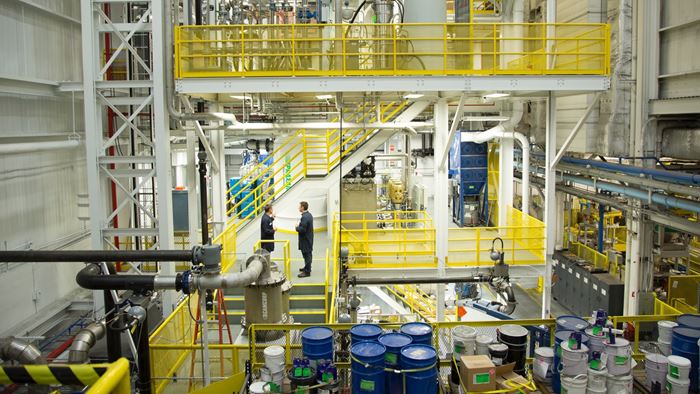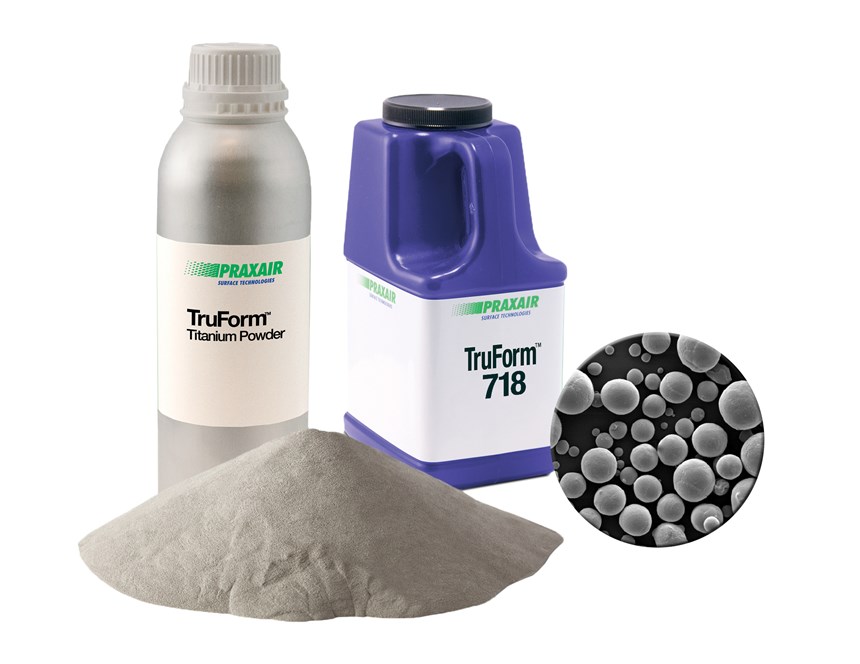Grant Supports Additive Manufacturing for North American Universities
As interest in additive manufacturing from the academic community steadily grows, Praxair Surface Technologies announces a grant that will provide select universities with powder materials as well as engineering assistance and material testing.
Praxair Surface Technologies (PST) is offering a limited number of in-kind grants to select North American universities through its surface technologies business. The grant recipients will receive material and engineering assistance to support metal additive manufacturing courses and projects from PST, as well as PST’s TruForm metal powder for additive manufacturing applications. Praxair’s team will also provide material testing and consultation.
“As a leading supplier of metal powder for additive manufacturing, we want to invest more in technology development to help grow the next generation of engineers,” says Dean Hackett, PST vice president of Advanced Materials & Equipment. “By offering our materials and other resources, we hope to support this exciting technology.”
The grant application form can be found here, along with more details related to what Praxair is calling the TruForm AMbition Grant. Grant applications will be accepted through December 31, 2017, and winners will be notified by February 28, 2018.
“Each day, more and more universities are incorporating metal additive manufacturing courses into their curricula,” says Andy Shives, business manager for Additive Manufacturing at PST. “We want to support growth in additive manufacturing projects within the academic community and hope that these grants will allow more schools to put a larger emphasis on metal AM. We also hope to gather more data on additional alloys to move the industry forward, while connecting academic projects with real industry projects.”
Praxair Surface Technologies, a subsidiary of Praxair, Inc., currently supplies cobalt, copper, iron, nickel and titanium based alloys and also offers the associated industrial gases to the additive manufacturing industry. PST’s Indianapolis location also operates multiple additive machines in its Additive Manufacturing Lab.
Related Content
-
Quadrus: Powder Management Tactics for Tungsten Rhenium and Other AM Alloys
The expert in additive manufacturing of high-value parts for the Defense Department often must change from one exotic material to another in its powder bed machines. Cleaning is a core competency. Here are lessons of this company’s system for working with an ever-changing mix of 3D printed alloys.
-
FDA-Approved Spine Implant Made with PEEK: The Cool Parts Show #63
Curiteva now manufactures these cervical spine implants using an unusual 3D printing method: fused strand deposition. Learn how the process works and why it’s a good pairing with PEEK in this episode of The Cool Parts Show.
-
Additive Manufacturing Versus Cavitation
The design freedom possible with laser powder bed fusion (LPBF) metal 3D printing is making it faster and easier to produce complex anticavitation devices for valves.

















